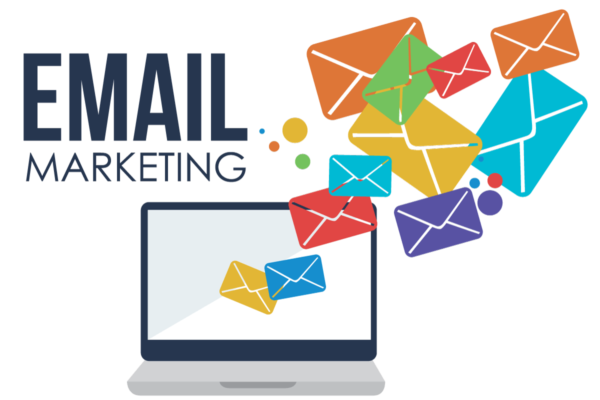Businesses that wish to remain competitive in today’s fast-paced digital environment need to have a strong online presence. In order to reach and engage with customers on diverse digital channels, this necessitates a cogent digital marketing strategy that makes use of a variety of methods and tools.
For organizations that want to draw in and keep customers, develop brand recognition, boost website traffic and conversion rates, and ultimately spur revenue growth, digital marketing solutions are essential. Businesses can utilize a wide range of tactics and platforms, including social media, email marketing, pay-per-click advertising(PPC), and search engine optimization (SEO).
What then are the purposes and advantages of these various digital marketing solutions? Let’s look at some of the strategies that companies are using most frequently and successfully right now.
Table of Contents
ToggleIncreasing Organic Search Traffic Using SEO
The practice of optimizing a website for search engine results pages (SERPs) is known as search engine optimisation (SEO). You may increase organic traffic and raise your website’s exposure on search engines like Google by using keywords and phrases that your audience is searching for in your website’s content, structure, and metadata.
The fact that SEO is an inexpensive method of generating traffic and leads is one of its main advantages. In contrast to paid advertising, SEO can still bring visitors to your site after your pages have been optimized. The user experience on your website is also enhanced by SEO, making it simpler for visitors to search for and navigate through your information.
PPC Marketing: Using Paid Advertisements to Speak to Your Audience
In the pay-per-click (PPC) advertising model, companies are charged every time a customer clicks one of their advertisements. To reach their target market, firms can use this sort of advertising to focus on particular demographics, geographic regions, and interests.
Increased brand recognition, strong search engine presence, and audience segmentation that is targeted precisely are all advantages of PPC advertising. PPC advertisements are also very scalable, enabling companies to design specific advertising that match the goals and brand messaging.


Relationship-building through social media marketing and brand awareness
Social media marketing refers to the use of social media sites like Facebook, Twitter, and Instagram to foster consumer relationships and advertise goods and services. Businesses may develop a devoted following and raise brand awareness by connecting with their audience through content, dialogues, and customer service.
Better customer involvement, higher website traffic, and improved brand recognition are all advantages of social media marketing. Businesses may leverage social media’s plethora of data and insights to improve their marketing and better understand their target audiences.
Email Marketing: Nurturing Leads and Building Customer Relationships
Email marketing entails sending tailored communications to a list of subscribers in order to nurture leads, create customer connections, and increase conversions. When combined with other digital marketing techniques like SEO and social media, this strategy may be very powerful.
Increased brand loyalty, improved engagement rates, and deeper consumer relationships are all advantages of email marketing. Businesses can examine data like open rates, click-through rates, and conversions through email marketing to evaluate their campaigns’ effectiveness.

Cutting-Edge Digital Marketing Techniques and Trends
New technology and trends are continually being introduced in the realm of digital marketing. Some of the most innovative digital marketing strategies used by companies today include:
- Chatbots: AI-powered chatbots can assist companies in automating customer support and engagement, giving customers a seamless experience.
- Based on data and insights, organizations may improve their advertising, content, and user experience with the aid of artificial intelligence (AI) and machine learning technologies.
- Personalization: Businesses may boost engagement and conversions by modifying content and messaging to each user.
One of the biggest challenges of digital marketing is measuring the return on investment (ROI) and key performance indicators (KPIs) for different strategies and channels. However, there are several metrics that businesses can use to measure the success of their campaigns, including:
Conversion Rates
The percentage of users who complete a desired action on your website, such as making a purchase, filling out a contact form, or signing up for a newsletter.
Click-through Rates (CTRs)
The percentage of users who click on an ad or email message, indicating their interest in the content or offer.
Return on Ad spend (ROAS)
The amount of revenue generated for each dollar spent on advertising.
Engagement Rates
The percentage of users who interact with your content on social media or other channels, such as likes, comments, and shares.
Pitfalls and Challenges to Avoid in Digital Marketing
While digital marketing solutions offer many benefits, there are also pitfalls and challenges that businesses should avoid. Some common mistakes include:
- Focusing too much on short-term gains and neglecting long-term strategies.
- Failing to tailor messaging and content to specific audience segments.
- Relying too heavily on one digital marketing channel and neglecting others.
- Ignoring the importance of user experience and website design.
- Not staying up-to-date with the latest trends and technologies in digital marketing.
To avoid these pitfalls, it’s important for businesses to understand their audience, set clear goals and objectives, and create a cohesive digital marketing strategy that integrates different tactics and channels based on their audience’s preferences and behaviors.
Conclusion
Businesses that wish to compete and flourish in the digital age need to implement digital marketing solutions. Businesses may connect with and engage with their audience across a variety of platforms and devices by utilizing various strategies and channels, which will increase traffic, leads, and sales.
Clear goals and objectives, an understanding of your audience and their preferences, and ongoing measurement and campaign optimisation based on data and insights are all necessary for creating successful digital marketing campaigns.
You may read more about digital marketing strategies in our resources on SEO, PPC, social media, and email marketing, or you can get in touch with our team to find out how we can use digital marketing to build your company.

5 Comments
Good – I should definitely pronounce, impressed with your web site. I had no trouble navigating through all the tabs and related info ended up being truly simple to do to access. I recently found what I hoped for before you know it in the least. Reasonably unusual. Is likely to appreciate it for those who add forums or something, web site theme . a tones way for your customer to communicate. Nice task..
You really make it seem so easy along with your presentation but I find this topic to be actually something which I feel I might never understand. It seems too complex and extremely wide for me. I am having a look forward on your next submit, I¦ll attempt to get the grasp of it!
Excellent beat, I would like to assist you in refining your website by demonstrating how to subscribe for a blog site. The account provided me with a substantial amount of assistance, and although I was somewhat familiarized with this, your broadcast offered a crystal-clear understanding.
Your point of view caught my eye and was very interesting. Thanks. I have a question for you.
Thanks for sharing. I read many of your blog posts, cool, your blog is very good.